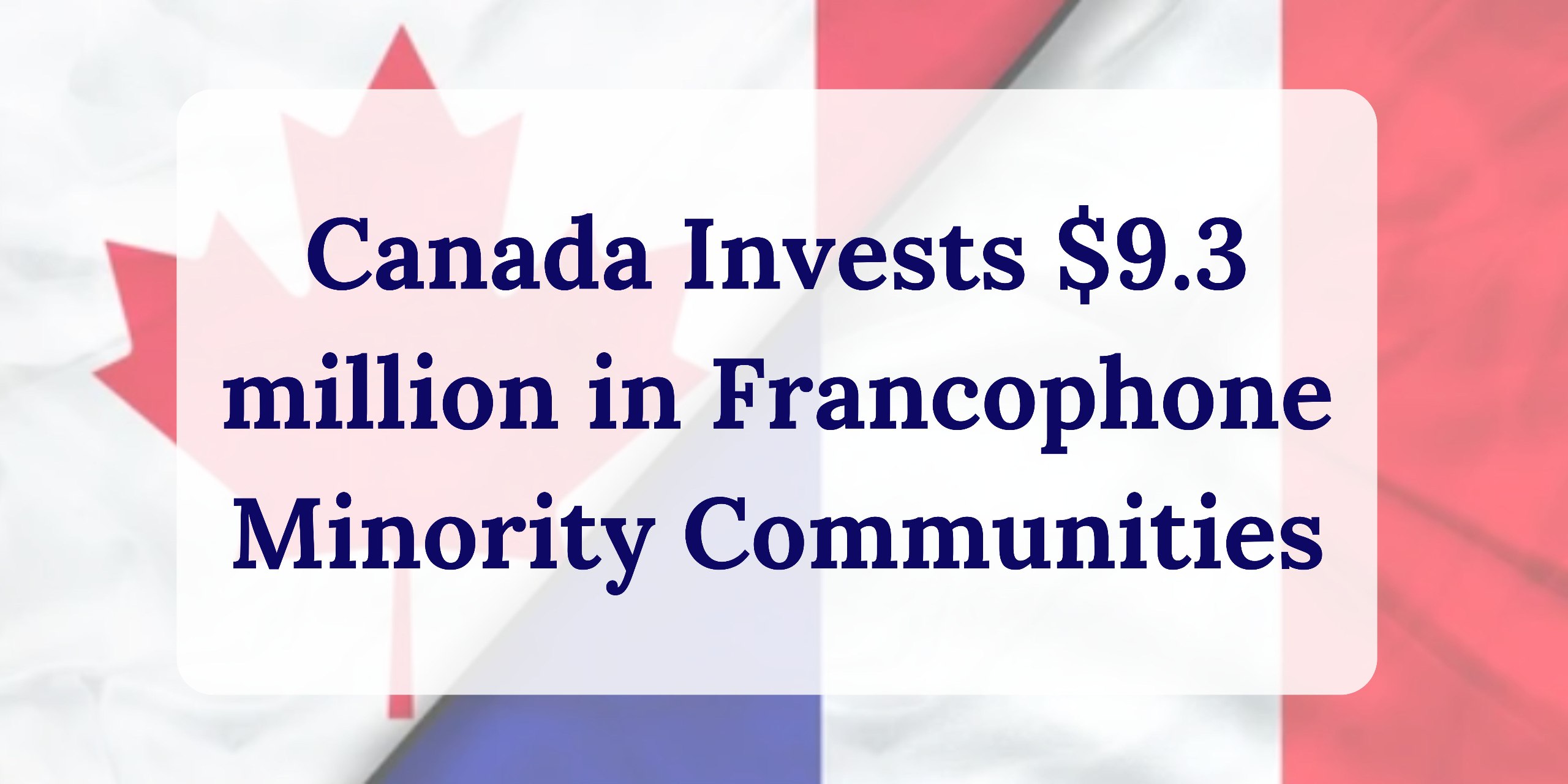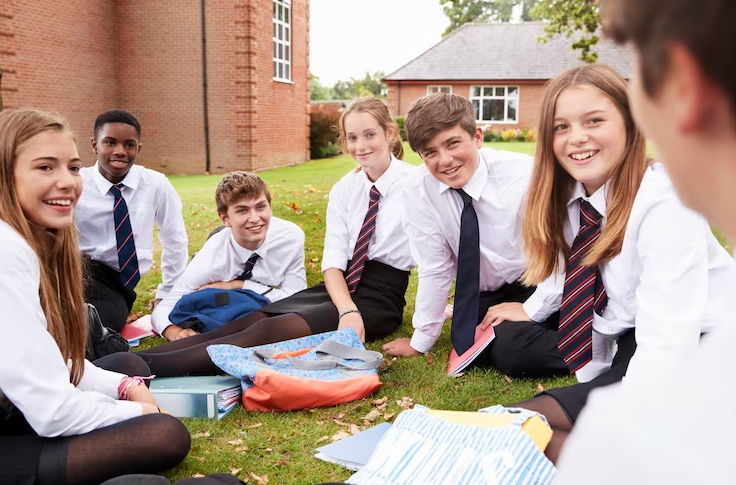
British boarding schools, also known as residential schools, provide a special form of education where students live within the school campus. This format of education not only promotes academic success, but also develops personal qualities and social skills.
Types of boarding schools in the UK
Independent (private):
Not funded by the state and dependent on tuition fees. They often offer a high level of education, extensive infrastructure and a wide range of extracurricular activities. Emphasis on academic excellence, well-equipped campuses, smaller class sizes, and a strong emphasis on individual development.
Public:
Maintained and funded by the government, making them more accessible to students. They follow the national curriculum but may offer additional programmes. Have lower tuition fees and a diverse student population.
Single-sex boarding schools:
Designed exclusively for boys or girls. This environment is believed to eliminate gender-related distractions and promote focused learning. Such schools have separate campuses or facilities for boys and girls, individualised teaching methods and a strong sense of community.
Coeducational boarding schools:
Designed to educate both boys and girls. They aim to provide a balanced and inclusive learning environment. These schools are characterised by mixed gender classes, diverse social interaction and a holistic approach to education.
International:
Attract students from around the world, offering a global perspective and cultural diversity. The curriculum often includes international programmes such as the International Baccalaureate (IB).
Specialised:
Specialise in specific areas such as the arts, sciences, sports or vocational training. They tailor their programmes to meet the unique needs and interests of students with particular talents or career goals.
Sixth Form Boarding Schools:
Also known as colleges, these schools are for students in the last two years of secondary education. They prepare students for university by offering advanced level courses.
Preparatory:
Designed for younger students and provide a foundation for future education. They prepare students to enter high school or college.
The structure of UK boarding schools
- Boarding Houses. Students are placed in boarding houses, each of which is supervised by a Housemaster or Housemistress. The house becomes the student’s residence, fostering a sense of camaraderie and support.
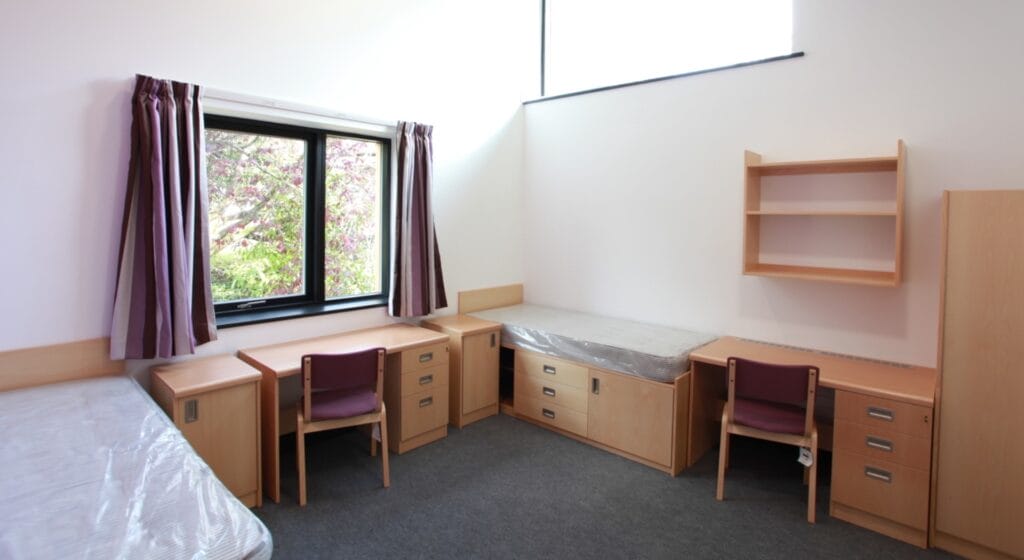
- Academic infrastructure. The schools have classrooms, libraries, laboratories and other facilities for academic activities. The curriculum follows national standards and may include a range of subjects.

- Canteen facilities. Boarding schools have canteens where pupils gather for meals. Some schools maintain formal dining traditions with specific seating arrangements.
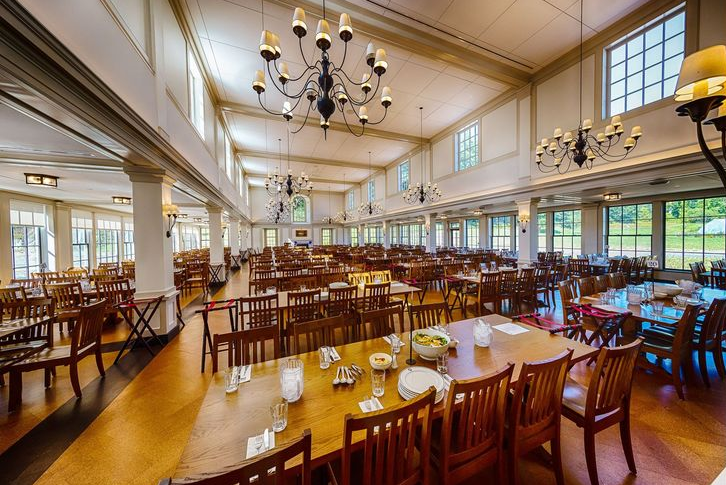
- Sports Complex. Schools generally have extensive sports facilities including playing fields, sports halls, swimming pools and courts. Sport plays an important role in the development of physical fitness and teamwork.
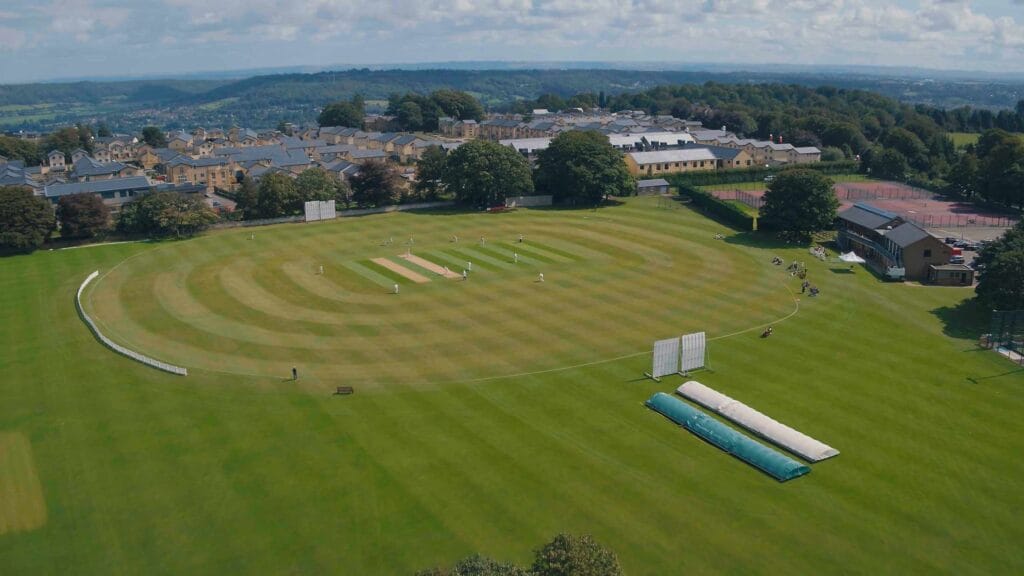
- Common Rooms. Common rooms provide a place for students to relax, socialise and participate in recreational activities. These rooms foster a sense of community.
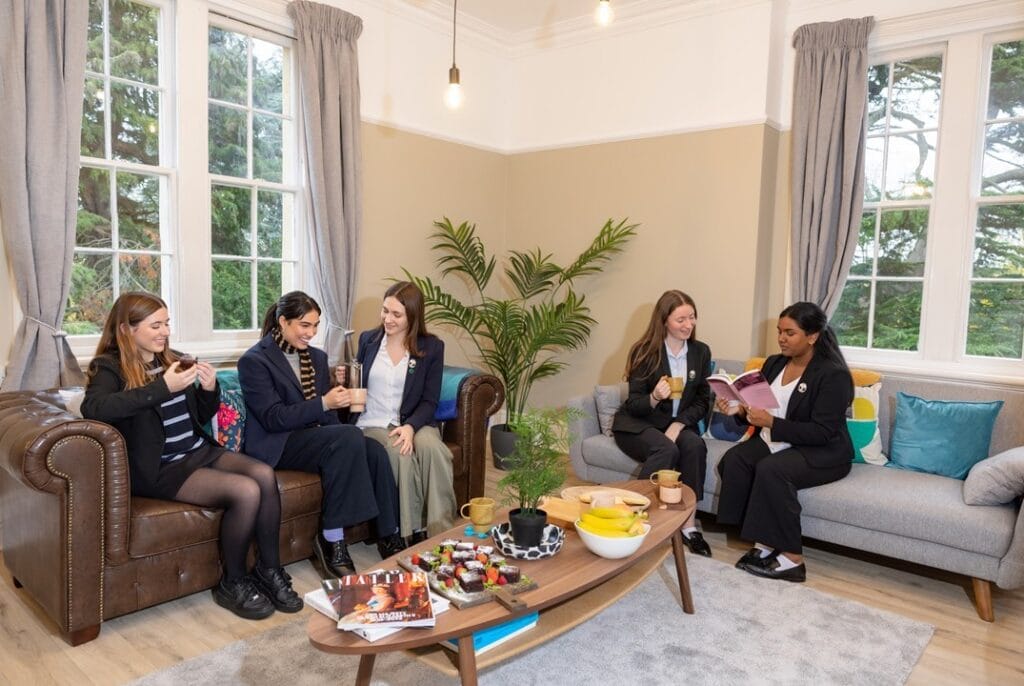
- Chapel. Many boarding schools have a chapel where regular services, ceremonies, and activities are held. The chapel serves as a centre for spiritual and moral development.
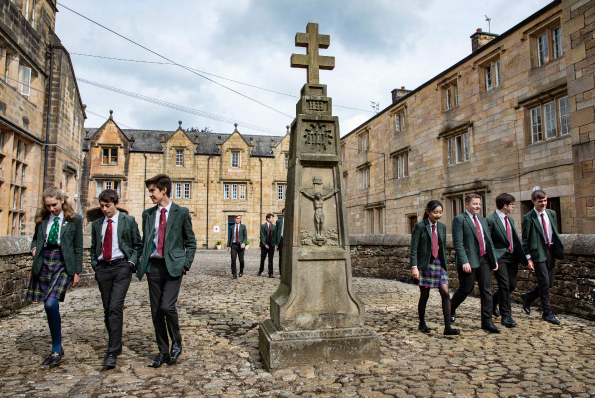
- Administration and offices. These offices may include the headmaster’s or vice headmaster’s office.
- Housing for parents. Parents responsible for supervising boarding houses often live on or near the boarding house grounds.
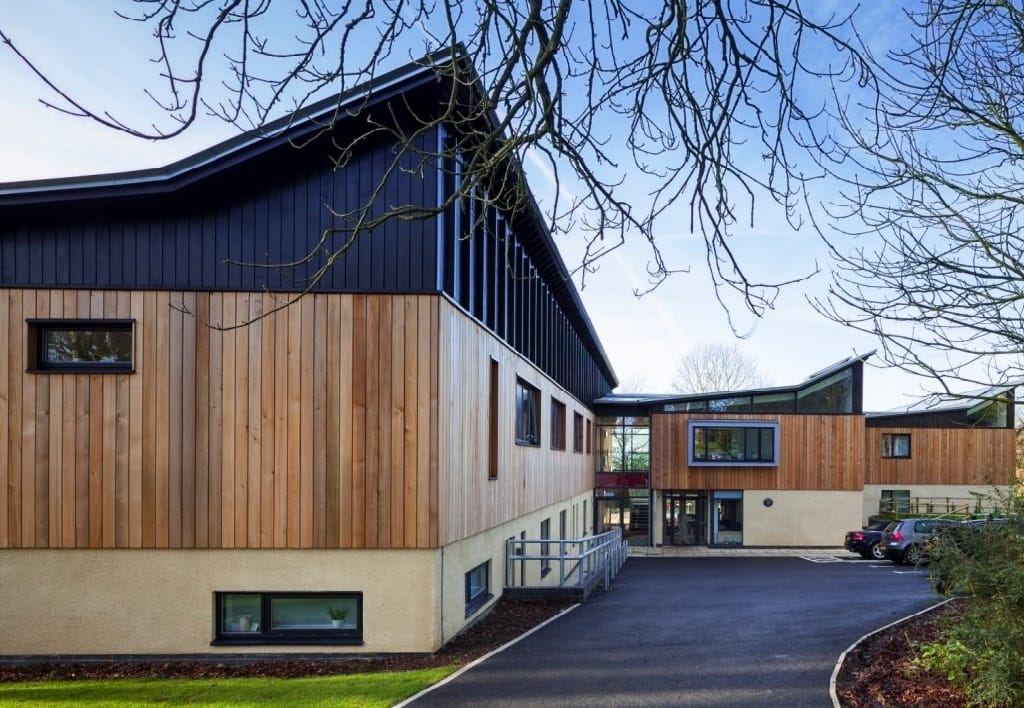
- Prefects’ accommodation. Prefects, student leaders appointed to fulfil various duties, may have designated accommodation or rooms in boarding houses.
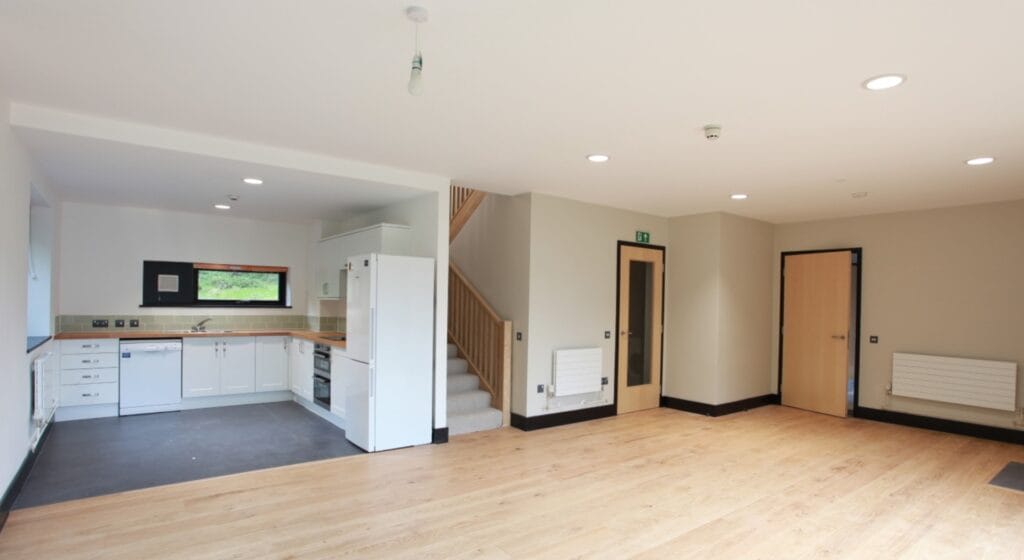
- Facilities for academic study, including classrooms, lecture theatres and specialised rooms for subjects such as science and technology.
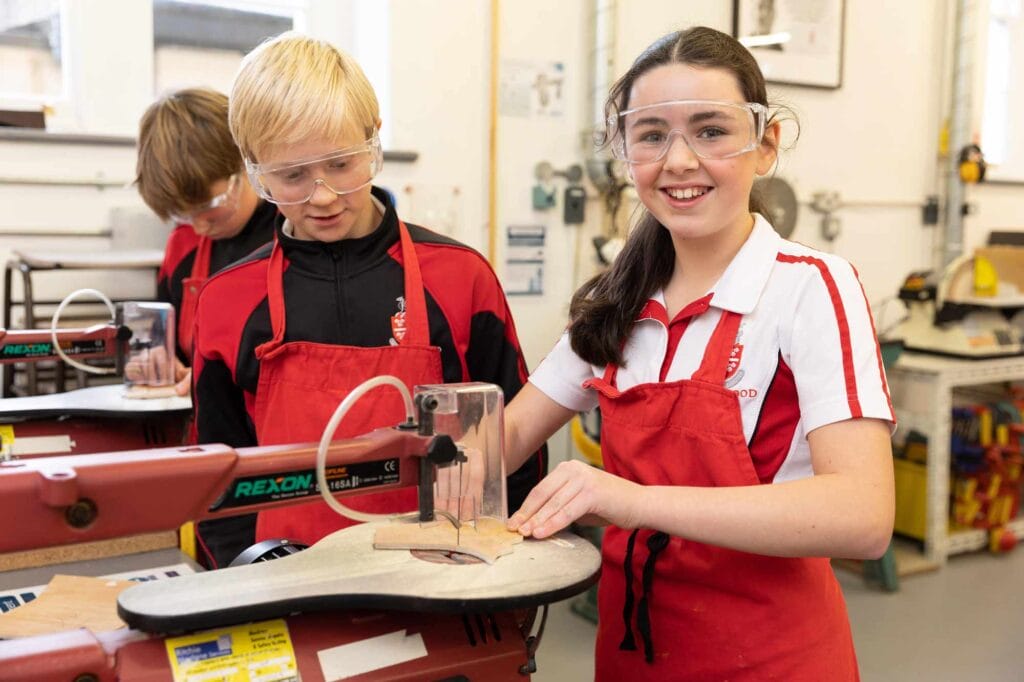
- Recreational facilities. In addition to common rooms, schools may provide recreational, play and leisure facilities.
- Open spaces. Gardens, lawns, and open spaces contribute to the aesthetic and recreational development of the school environment.
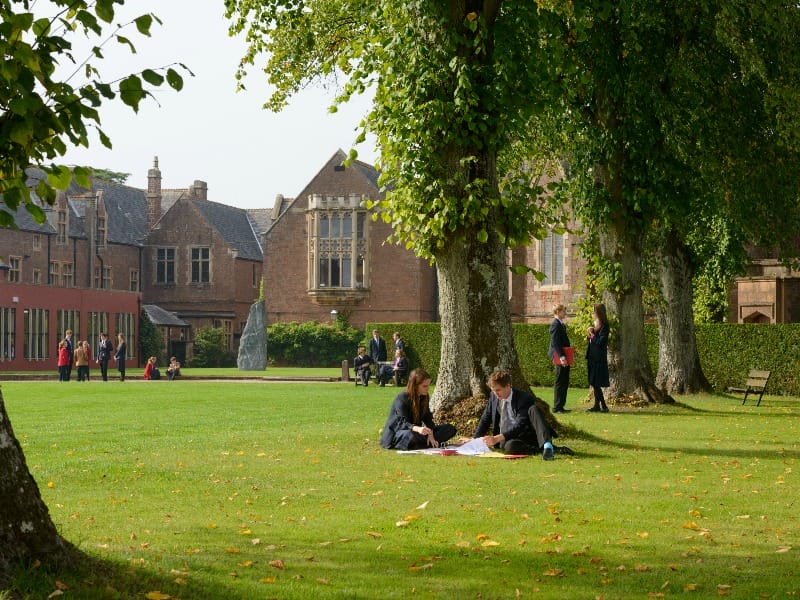
- Infirmaries or medical facilities meet the health care needs of students, often staffed by qualified health care professionals.
- Theatre or auditorium. Some schools have dedicated performing arts facilities for theatre productions, concerts, and other cultural events.

Programmes of study
- GCSEs (General Certificate of Secondary Education):
GCSE is a two-year programme usually taken by students aged 14-16. It covers a wide range of subjects including English, maths, science and humanities. At the end of the programme, students take examinations which provide a foundation for further study.
- A-Levels (Advanced Level):
A-Levels is a two-year programme for students aged 16-18. Students usually choose three or four subjects to specialise in, allowing for in-depth study. A-Levels are well established for university entrance and provide a high level of academic preparation.
- International Baccalaureate (IB):
The IB programme is a comprehensive diploma for students aged 16-19. It comprises six subject groups including languages, science, maths and arts. The programme also includes Theory of Knowledge, Extended Essay and Creativity, Activity, Service (CAS) components, promoting a holistic approach to education.
- Pre-University Foundation Programs:
Foundation programmes are designed for students who need additional preparation before entering university. They cover core subjects and often include English language support, ensuring that students are well prepared for higher education.
- Specialised vocational programmes:
Professional programmes focus on specific career areas such as performing arts, sports or technology. Students gain practical skills and knowledge relevant to their chosen field and prepare for entry into employment or higher education.
- Extended Project Qualification (EPQ):
The EPQ is an independent research project that students undertake alongside their core studies. It allows students to explore a topic of personal interest in depth, developing critical thinking and research skills.
- English as a Second Language (ESL) programmes:
ESL programmes are designed for international students who wish to improve their English language skills. These programmes focus on developing the language skills necessary for academic success and everyday communication.
- Oxbridge Preparation Programs:
These programmes offer specialised training and guidance for students wishing to apply to Oxford or Cambridge universities. They often include mock interviews, help with writing a personal statement and personalised academic support.
- STEM (Science, Technology, Engineering, and Mathematics) programmes:
STEM programmes focus on the study of science, technology, engineering, and mathematics. They offer specialised courses, projects and extracurricular activities to prepare students for careers in these fields.
- Arts and Humanities programmes:
Schools with a strong arts and humanities emphasis offer programmes in literature, history, art, music and other related subjects. Students participate in creative projects, performances, and critical analyses.
- Gap Year programmes:
Structured intermediate year programmes give students the opportunity to take a gap year before entering university. These programmes often include travel, volunteering, internships and personal development activities.
Interesting Facts
- Several British boarding schools served as inspiration for Hogwarts School of Witchcraft and Wizardry in the Harry Potter book series. For example, Alnwick Castle in Northumberland became the prototype for parts of Hogwarts.
- The prefect system is a long tradition of British boarding schools. Older pupils, known as prefects, are given responsibilities and a role in maintaining discipline and order.
- Schools often operate on a house system, where pupils are divided into different houses, each with its own personality and leadership structure. Houses compete against each other in a variety of activities, from sports to academics, creating a strong sense of camaraderie and competition.
- Some schools have formal dinner traditions where students and staff come together for a special meal. The concept of the ‘high table’ is common, where senior staff and sometimes guests of honour sit at an elevated table.
- Rowing or other sporting competitions between houses are traditional. The Boat Race, inspired by the famous Oxford and Cambridge Boat Race, includes rowing competitions to demonstrate teamwork and sportsmanship.
- Speech Day is an annual event where achievements are celebrated and distinguished guests give speeches. Prizes and awards are often given out, and the event serves as the culmination of the school year.
British boarding schools are bastions of education, imparting not only knowledge but also values that mould individuals for life. The different types, specificity and direction of education of these institutions contribute to their unrivalled reputation in global education. By embarking on this exciting journey, students not only learn academic skills, but also form lifelong connections and experiences that go far beyond the classroom.


